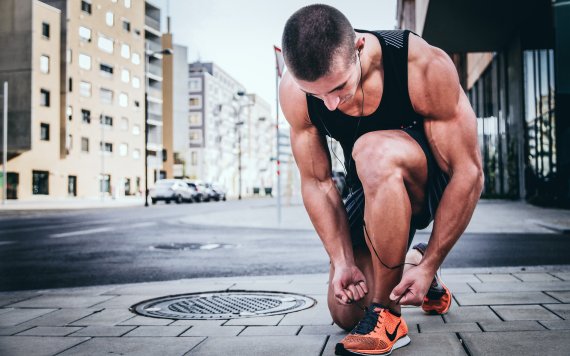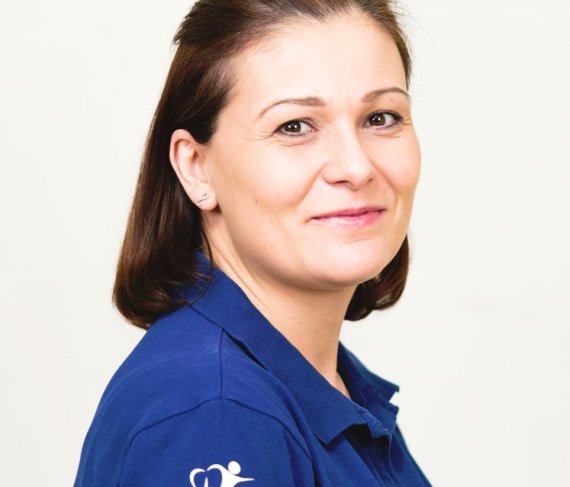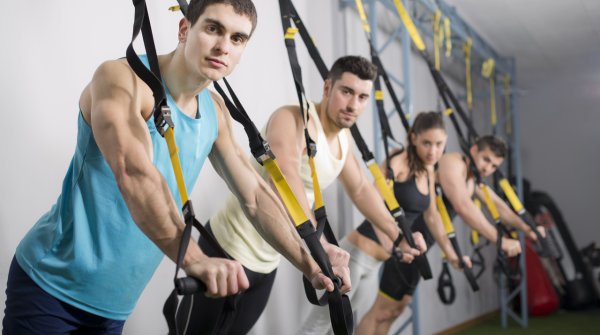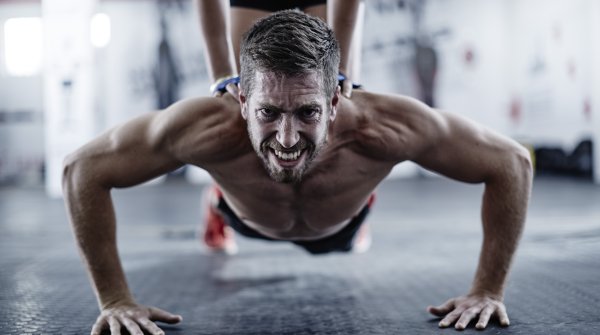
Dr. Hande Hofmann is a research associate at the Technical University of Munich (TUM). Her specialties at the Faculty of Sports and Health Sciences are nutrition and health, sports and the immune system, and nutritional supplements and sports. ISPO.com met Hande Hofmann for an interview. A conversation about daily requirements, timing and the positive effects of the "Train Low" method.
ISPO.com: Dr. Hofmann, hiking is becoming increasingly popular. Day tours to Bavarian huts like Neureuth or Tegernsee Hütte are booming. But how effective is hiking in terms of calorie consumption? Can we enjoy the Kaiserschmarrn after two hours of leisurely hut climbing without remorse?
Hande Hofmann: That depends on the person. If you start with the recreational athlete who hikes at a low intensity, i.e. walks more, then the calorie consumption is correspondingly low. And then it is actually not quite enough for the delicious schnitzel with potato salad or the large portion of Kaiserschmarren. But you can also walk differently, at a good pace.
Which in turn immediately raises the question, what is a good pace?
Again, you can't pin it down to a speed, but to how fit the person is. So you have to ask yourself the question: How fit am I and how much do I call on my personal fitness level?
How intense is the hike for me personally, how much am I pushing my body's fitness level. If I'm doing it at a high intensity, then I'm already burning a significant number of calories. However, we are talking more about a mountain run. This no longer has anything to do with the classic hiking image we know: leisurely path, slow pace. If I really want to burn calories while hiking, in addition to the scenery and nature, I have to pick up the pace.
Many recreational athletes struggle with the fact that they do exercise regularly, such as jogging, but their fitness does not improve. How come?
Basically, I think that very many fall into this trap. It's true that these sports sessions, as you described, are training in a way, but the body doesn't have to adapt anymore. Say: I do my sport, which is per se already very good, but I call at the point merely my existing fitness level.
To get an adaptation in the body, I need to vary my jogging laps. For example, by running longer laps or increasing the intensity. When it comes to intensity, it's not about jogging faster for 30 minutes straight, but you can train in intervals. That's enough that your heart rate adjusts or blood flow increases because your muscles need more oxygen - thereby forcing my body to adapt.
So the same parkrun over and over again is something to avoid?
If you want to boost fitness and calorie burn, yes. Training always pushes you harder in the beginning because your body has to get used to it, but after a while your body reaches a kind of plateau and at that point you have to change something again.

Myth calorie consumption - I do sports, so I eat?
Yes, here too many fall into the trap, because you think to yourself: I do sports, I can eat more. Many indulge themselves more and exactly that is wrong, because: If you really want to lose weight, then it is not only the exercise, but then you have to keep in mind the "negative adjustment" of the diet. While you do have more calories available, to lose weight you have to walk out with a minus at the end of the day. Otherwise, weight loss is not going to happen.
Let's stay on the topic of food: Let's say I evolve from a beginner to an ambitious amateur athlete. Then the media suggest to me that I won't get anywhere without dietary supplements and a special diet. Is that true, or do I achieve similar, perhaps better effects with a banana?
You have to have a two-pronged discussion about this. Basically, we know that you can achieve quite a lot through nutritional timing for performance retrieval. Of course, these approaches come from competitive sports, but they can also be adapted for amateur athletes. Here it is about finding solutions how an athlete should eat 24 hours before a competition, what he should eat a few hours before and during the competition and how one can support the regeneration. These are all very important building blocks for an athlete.
The question remains, whether these strict diet plans, must also practice amateur athletes?
No, they don't have to. If I do sport once or twice a week, then I can manage that well with my normal diet. I advise against dietary supplements completely, because as an amateur athlete I don't consume that much more. Nevertheless, it's good to be knowledgeable and know how to choose foods intelligently so that the body is always optimally equipped for what I want to achieve.
And what does that look like specifically?
Drinking enough, eating a good amount of time beforehand. The meal should be easily digestible so that you don't get stomach cramps, so not too fatty and only a few fibres. After the exercise session, if you don't want to lose weight, it's a matter of balancing: Carbs and fiber. I can eat a banana and drink a glass of milk.
And how can I boost my receptors via the exercise session?
By stimulating the body, for example with the help of the "train low" training method. It comes from competitive sports, but can also be used in hobby sports. For example, if I want to make greater use of the fat metabolism in my workout. Then train low is a possibility.
What does Train Low mean?
Simplified, it means: I put my body in a state where it's lacking something, then I train and the mechanism that has to compensate has to adjust.
- Overnight, my liver glycogen is depleted. This means that the liver's carbohydrate reserves are being broken down to maintain my blood sugar levels.
- If I then go for a high intensity jog in the morning on a fasting basis, my muscle glycogen is attacked.
- After this fasting exercise session, I eat low-carb.
- Then I do another training session in the afternoon and I didn't eat carbs during the day.
- Then my body has no carbohydrates available. If I don't provide it with carbohydrates during the workout either, it has to get the energy from somewhere else and it goes more into the fat metabolism.
- After the second training session, I can then take carbohydrates again, preferably in combination with proteins. This way the body can regenerate well.
To sum it up , we put the body on a diet as far as carbohydrates are concerned, then I go into the load and then it has to work harder with fat burning. It doesn't go completely in isolation, but this method focuses on fat burning.
If I incorporate the "train low method" into my daily exercise routine once a week, is that enough for medium-term results?
Yes. I can stimulate my body with this.
Also a common question on the net: does alcohol stop fat burning?
If I drank alcohol, then the body focuses more on the breakdown of alcohol, so that other metabolic mechanisms suffer. That's why I block myself when I drink alcohol and do sports, because then everything is misdirected. In other words, when alcohol is in the blood, our body has to detoxify and our performance suffers as a result.
In times of vegan nutrition, the topic of whether vegan nutrition is particularly good for the regeneration phase comes up again and again. How do you see this from a scientific point of view?
These discussions cannot be held at the moment because there is simply no scientific basis for them. What is always propagated with the vegan diet are case studies. These are individuals who may have seen a positive effect on themselves. But you can't extrapolate from individuals to the population, that doesn't work. In the vegan diet there are too few studies, too few long-term studies, or even well-done studies. The data situation is very poor. Here I am afraid to make hard statements.
What is the best thing to drink while exercising? What gives me wings, if you will?
Basically, the main factor is how quickly the drink is released from the stomach into the intestines. This is called gastric retention time or gastric emptying time. The thinner, called "hypotonic" in the jargon, the shorter the retention time. Tap water and thin teas are accordingly fast in the intestine. Hypertonic drinks/liquids (i.e. with a higher osmotic pressure) stay longer in the stomach and therefore enter the intestine later and from there into the body.
These include coffee or soft drinks. Which is also what advertisements like to suggest: You take a magnesium shot to you and everything goes better. This is only partly true, because the magnesium peak is only reached two hours after taking it. By then, many recreational runners are already back on the couch. In addition, many do not tolerate these highly concentrated shots and get diarrhea. If you think you need magnesium in high doses, you should take it beforehand.
To conclude this insightful interview with Dr. Hande Hofmann, we answer some more questions about losing weight below.
Approximately, you burn 30 to 40 calories for 1,000 steps, which translates to between 300 and 400 calories for 10,000 steps.
The calorie requirement is always individual. Factors such as body size, weight, goals, calorie intake and calorie deficit are relevant factors. The calorie deficit should be 10 percent of the daily intake - at 2,000 calories per day, this corresponds to a deficit of 200 calories.
 Know-HowThe 11 Best TRX Exercises
Know-HowThe 11 Best TRX Exercises
- ISPO awards
- Mountain sports
- Bike
- Design
- Retail
- Fitness
- Health
- ISPO Job Market
- ISPO Munich
- ISPO Shanghai
- Running
- Brands
- Sustainability
- Olympia
- OutDoor
- Promotion
- Sports Business
- ISPO Textrends
- Triathlon
- Water sports
- Winter sports
- eSports
- SportsTech
- OutDoor by ISPO
- Heroes
- Transformation
- Sport Fashion
- Urban Culture
- Challenges of a CEO
- Trade fairs
- Sports
- Find the Balance
- Product reviews
- Newsletter Exclusive Area
- Magazine
